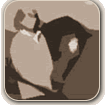 |
|||||||||
|
|||||||||||||||||||
|
|
Prime
Cattle for Prime Lakeland Beef 27/01/06
Eden Valley farmers Steadman and Judy Dodd produce quality cattle and each week they regularly meet the specifications required by the increasingly popular regional brand, Lakeland Beef. The Dodds are passionate about their beef cattle and despite the setbacks foot and mouth brought in 2001 they have re-established their noted Redrock pedigree Limousin herd and they also use their pedigree Limousin bulls across the herd of commercial sucklers to produce top prime beef. Over the last year virtually all their finished beef cattle have sold for the Lakeland Beef brand which more and more restaurants, hotels and pubs across the region are selling. All the cattle finished on their 400-acre farm West View, Temple Sowerby, near Penrith are sold through the ring at Borderway Mart, Carlisle - the Dodds are firm supporters of the auction system. Lakeland Beef is a partnership between Pioneer Foodservice, of Carlisle, which also has a depot in Gateshead, auctioneers Harrison & Hetherington, whose mart at Borderway neighbours Pioneer’s headquarters, and abattoir firm Rose County Foods, of Sawley. Harrison & Hetherington gives help and guidance over the procurement of the beef of the required specification from farm-assured producers in the CA and LA postcode areas for the Lakeland label either through the ring or direct from the farm. Pioneer takes ownership of the whole carcase which after being at Rose County Foods is further processed by Pioneer. The regional brand has been gradually gathering momentum and has the backing of EBLEX (English Beef and Lamb Executive). Restaurants and other catering establishments are readily using the Lakeland brand on their menus. Guaranteeing the provenance of the beef, Pioneer’s sales team gives the names and addresses of producers and quantities of beef each has supplied to the caterers. “Because of what is happening in the marketplace globally and the increasing demand for local produce, this is an important time for farmers to be involved with regionally branded initiatives like Lakeland Beef,” said Pioneer’s commercial director Barry Garrett. “Over the past 12 months virtually all our finished cattle have been sold for Lakeland Beef - between three and four a week,” said Steadman Dodd. “We are very pleased with the price we receive and an added bonus is we follow through our cattle and we know how they have graded and their killing out percentages.” Judy Dodd added: “We are great believers in local branding of our food, particularly now with concerns over imported meats. We must encourage people to buy as much locally-produced food as possible to support local producers and processors but also to have guarantees about its origins and standards of rearing and finishing. “Lakeland Beef is available now at many pubs and restaurants - we regularly eat it and it lives up to its reputation.” The Dodds have long been into quality beef production. They established their Redrock Limousin herd 22 years ago and they have re-built numbers up to 100 pedigrees since losing virtually all their cattle to foot and mouth in 2001. They now have home-bred heifers in the herd and during 2005, 50 cows calved in 2005. Alongside the pedigree herd they run another herd of 100 commercial cows and heifers. Both herds calve all the year round and most are sold with calves at foot. As well as breeding their own herd replacements they have built up a reputation for the heifers they sell at Borderway with calves at foot by their own stock bulls, the females being bought-in as bulling heifers. They have sold up to £1,700 with a calf at foot, generally aged around six weeks old. Stock bulls are Allanfauld Rumpus, Redstone Storm, bought back at nine months old, the French bred Sulkey and Redrock Oboy who escaped foot and mouth as he was away from the farm, Scorboro Ramrod and they have a half share in the French bull Siagra with Threlkeld pedigree breeder George Hutton. The Dodds have always believed in investing in the best they can. “The best bullocks finish the easiest and they need the least feed while plainer sorts not only take a lot more finishing but they don’t make the same money per kg,” said Steadman Dodd. The Dodds finish between 150 and 200 cattle a year, buying-in around half of those as 15 month old store cattle in local marts. Home-bred calves are weaned at nine months old and they are introduced to a silage and maize diet including rolled barley. “We keep the finishing period for home-bred and bought-in cattle as short as possible - it takes three months - and we finish three or four each week,” said Steadman Dodd. “Previously we were keeping steers until 22 months old to claim the second premium, but now with the Single Farm Payment we are finishing them earlier and we are able to put more through the system as a result,” he added. The Dodds, who are helped in their farming operation by employee Joe Harrison, also run a flock of 370 Texel cross Beltex ewes which lamb from March 20, mainly to the Beltex. Most are finished off grass and sold through the ring at Borderway Mart. © Copyright 2005 Jennifer MacKenzie All Rights Reserved. |
||||||||||||||||||

|
|
||||||||||||||||||
| home | agri-services | pedigree
pen | news | dairy | beef | machinery property | organisations | site map |
|||||||||||||||||||

Article by
Jennifer MacKenzie

